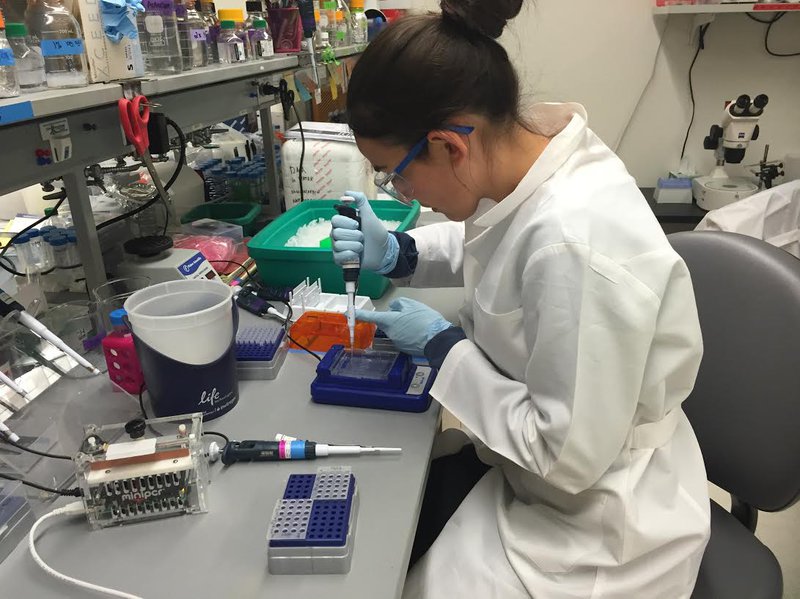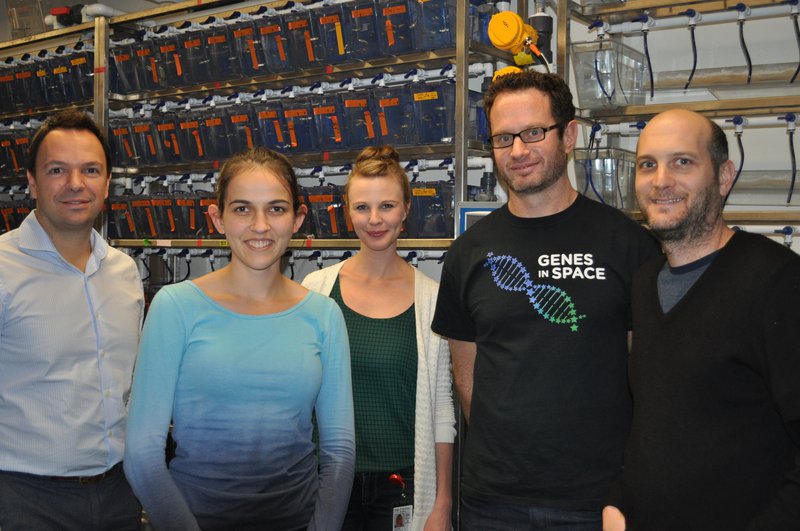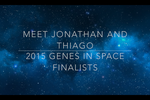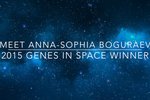If you were an astronaut, what would you want?
In the frigid New England weather and bustle of the Giraldez lab at Yale Medical School, Anna-Sophia Boguraev was putting the finishing touches on her space-bound DNA experiment. Anna-Sophia, the 2015 Genes in Space winner, is assessing the impact of microgravity and radiation on the human immune system. After spending prolonged time in space, the immune system of astronauts gets suppressed. We don’t fully understand the mechanism for this suppression. Anna-Sophia’s hypothesis is that changes in the astronauts’ DNA are involved; more specifically, epigenetic changes in the methylation of genes necessary for healthy immune function..

Anna-Sophia finalizing her space DNA experiment at Yale University. All Genes in Space finalists will win miniPCR DNA Discovery System for their school, including PCR, gel electrophoresis, and micropipette!
In between the micropipetting, chomping down BiBimBap from the food trucks, and visits to the fish facility, we got chatting about her Genes in Space experience. We wondered, how did you come up with your space DNA question?
She said that she started with a broad question – what problems do astronauts have? She thought it would be helpful to think of something that could help astronauts. She had learned about the immune system in school. So she narrowed her exploration to that topic. Then, she read dozens of papers about the topic.
We also asked Anna-Sophia, what tips would you give to other students applying for this competition?
- Don’t get too attached to any topic. Start simple. And be open to letting your ideas evolve.
- Do your research. Read, read, and read.
- Have fun. Having fun is knowing that you are learning. You will learn a lot just by participating.
- Don’t be afraid to take risks. Even if success doesn’t come immediately, the act of trying will help you find success.
- Don’t procrastinate! Give yourself time to write your proposal.
- Think of the problem, and then the solution. If you lived in space, what would you want? What would you need? Don’t start with what experiment can I do using PCR in space?
As we looked around in the lab at Yale’s Department of Genetics, we couldn’t help but feel giddy about the amazing talent and energy around us. We asked Anna-Sophia, how has it been working in a lab?
She joked that while her hypothesis didn’t change, her procedure was “out there”. She exclaimed that when she was thinking about her experimental design and writing procedures for astronauts, she had overlooked details like – Change the micropipette tip. Now that she’s spent considerable amount of time in a lab, the importance of these small details isn’t just apparent –it’s ingrained in her actions.
The experience has also helped her understand the finer points of being a scientist. When you work on a cell culture, you start to learn what the cells like and what they don’t like. And you learn how far you can push a procedure before it falls apart. You may have a theoretical understanding about these things, but actually doing it makes all the difference.
And finally, she said that she is a lot more organized now! As any typical high-school senior, she is busy with college applications, sports, extracurricular activities, friends and family. This experience has encouraged her to be more systematic. She mentioned that even her laptop has organized folders now!
**Special thanks to Prof. Antonio Giraldez and graduate student Ashley Bonneau at the Genetics Department, Yale University for helping Anna-Sophia get her experiment ready for space travel**



